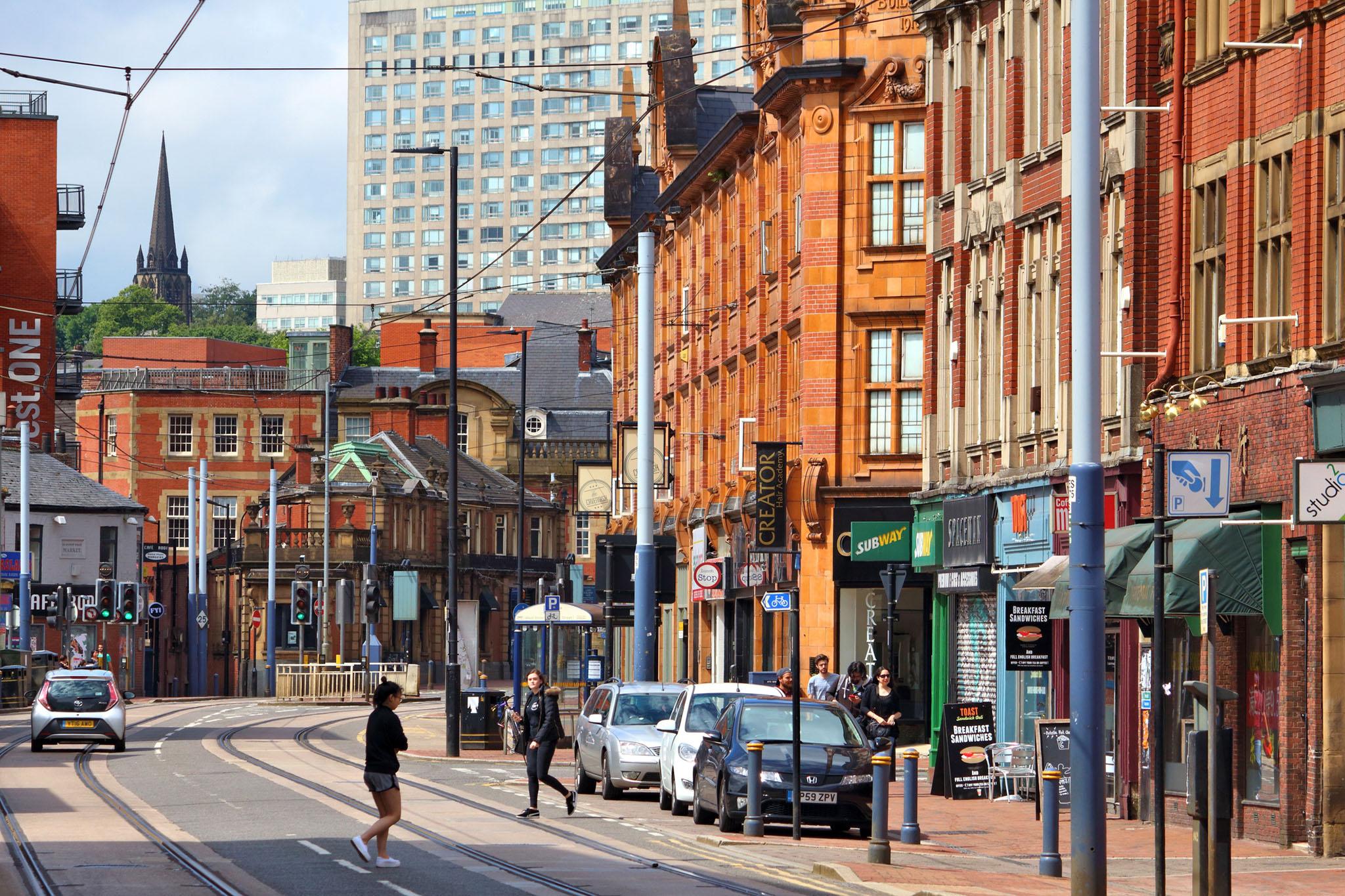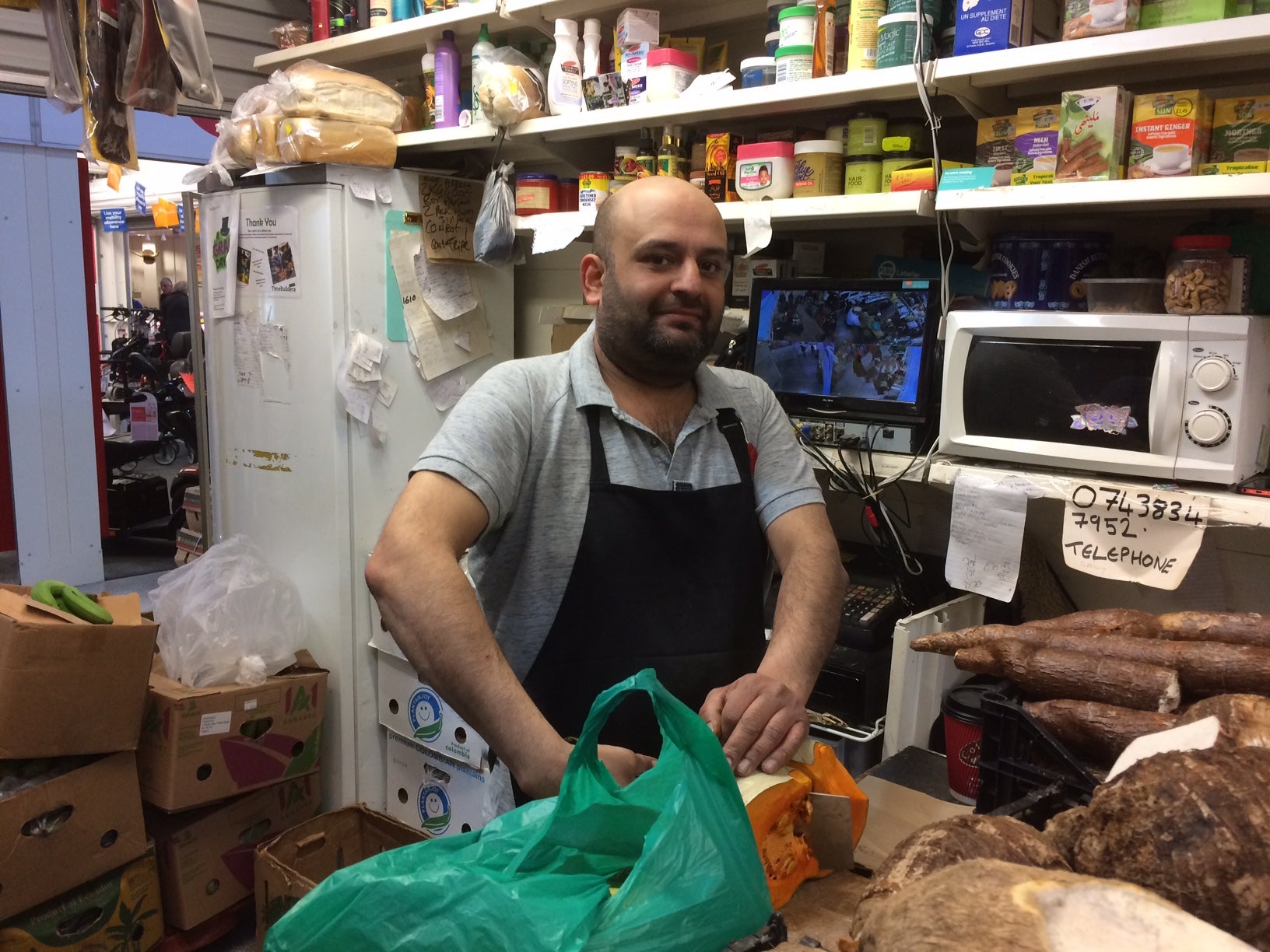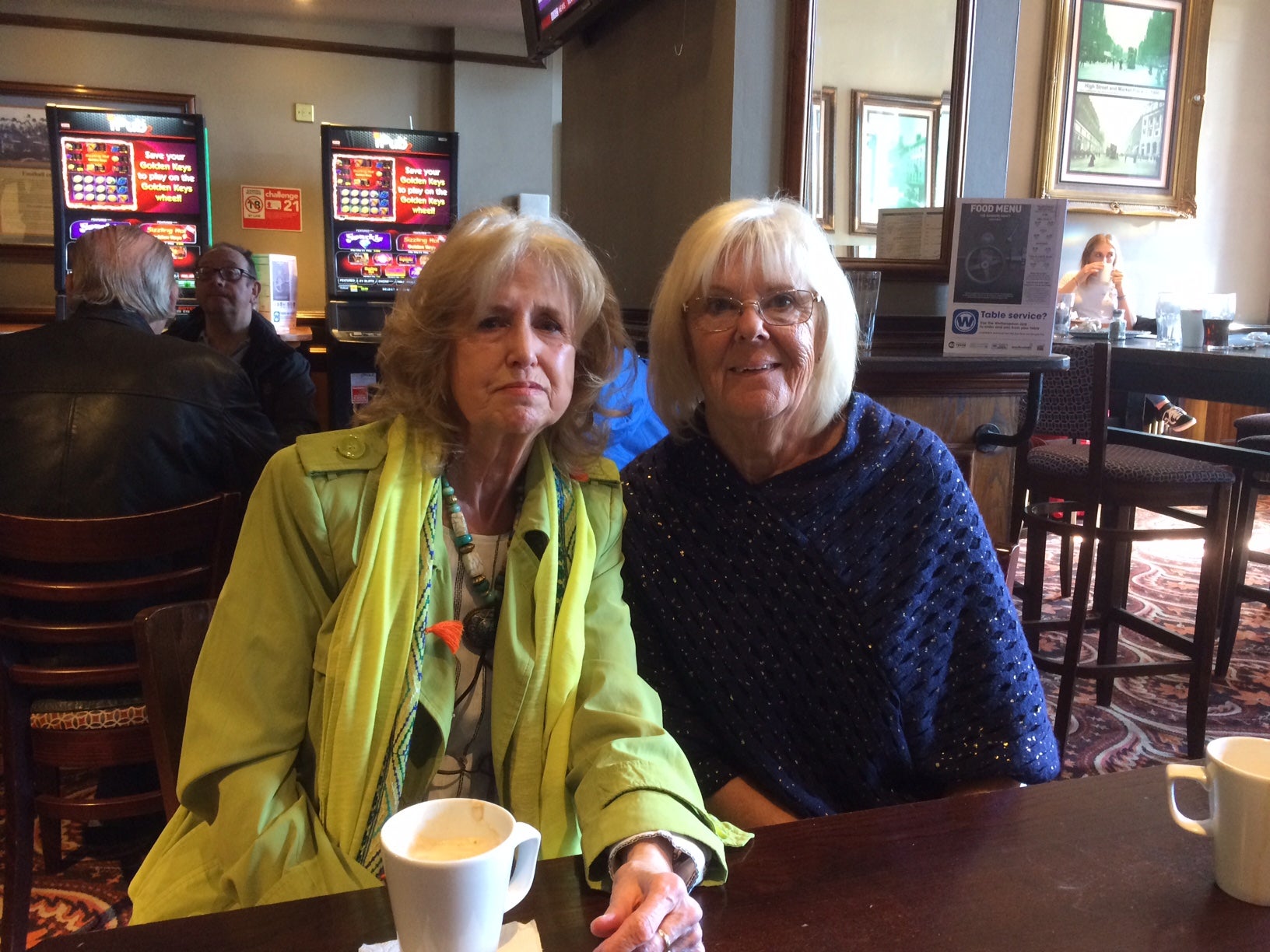Steel City blues unite Remainers and Leavers on date UK was meant to Brexit
‘I just want to be able to put the radio on again and not have to listen about it’

Your support helps us to tell the story
From reproductive rights to climate change to Big Tech, The Independent is on the ground when the story is developing. Whether it's investigating the financials of Elon Musk's pro-Trump PAC or producing our latest documentary, 'The A Word', which shines a light on the American women fighting for reproductive rights, we know how important it is to parse out the facts from the messaging.
At such a critical moment in US history, we need reporters on the ground. Your donation allows us to keep sending journalists to speak to both sides of the story.
The Independent is trusted by Americans across the entire political spectrum. And unlike many other quality news outlets, we choose not to lock Americans out of our reporting and analysis with paywalls. We believe quality journalism should be available to everyone, paid for by those who can afford it.
Your support makes all the difference.It is a beautiful day in Sheffield, South Yorkshire: the sky is blue, the sun is shining and a funfair has pitched up outside the town hall.
There is just one thing bothering a lot of people: me.
I’m here in the city – my home city – on what should have been Brexit Day to ask how its residents feel about the fact the whole process of the UK leaving the EU remains, almost three years after the referendum, up in the air.
And, frankly, I’ve never had a question met with so much eye-rolling.
Received wisdom may run that this issue has divided the country into two increasingly polar, increasingly divided, ideological camps.
But there’s just a suggestion today that, in fact, it may also have united vast swathes of the population. That is to say, it may have united them in wishing they would never have to hear or talk about Brexit again.
“I just want it over, mate,” says Pardeep Sumal, owner of the Continental Foods outlet in the city’s Moor Market. “I just want to be able to put the radio on again and not have to listen about it.”
He himself voted to remain but would have liked today – deal or no deal – to have closed this particular chapter of British history.
“I knew the night of the vote it was going to go Leave,” the 40-year-old says. “I’ve never seen such queues at polling stations. People don’t turn out in those numbers to keep the status quo. I knew that night, and I accepted it. It’ll probably make me a bit poorer as a trader but that was the decision. Que sera, sera, mate.”
Is he worried about what will happen next, though? “No, I’m just worried it’s going to keep dragging on. This country ruled the world. Are you telling me it can’t now leave a union without planes being grounded or whatever? Get on with it and give us some peace.”
It is a view echoed by several traders and shoppers here.

“I’m old enough to remember life before the EU,” says Jonathan Youdan, 62, owner of S&J’s delicatessen. “You couldn’t get strawberries except in summer. Fruit was entirely seasonal. Some years, it was so scare in winters, you’d end up eating a carrot for a snack. Being part of the EU changed that. It created a golden age for this continent. And that has been thrown away in a referendum. But you have to do what the people say. If not, what? Best of three referendums? Best of five?”
A customer looking at the cheese range shudders at the thought. “One was enough,” she says, and shuffles off.
It is probably worth listening to what Sheffield says.
It voted virtually the same as the country at large in 2016 with a cigarette paper split of 51-49 in favour of leaving the EU. It was the only one of the north’s five great cities – Manchester, Leeds, Liverpool and Newcastle – that did not come out for Remain. Like Sunderland hours before it, Sheffield voting to walk was a sign that things were not going the way they were expected to.
“I certainly did vote Leave,” says Val Claxton, when I approach her in one of the city centre’s three Wetherspoon pubs.
Actually, that’s not quite right. The first thing she says is: “Don’t talk to me about bloody Brexit unless you want to hear some swearing.”
I tell her I can handle a little bit of blue. “Then it’s a balls-up,” the 72-year-old grandmother-of-four declares. “I’m sick of hearing about it. The country instructed politicians to take us out. Why haven’t they done it?”
She voted to leave for several reasons, she says, but one was the price of fish. “It’s like buying a piece of steak these days, it’s so expensive – and that’s because of European fishing rules. They’re pricing me out of a piece of fish.”
She looks around, as people often do in this city before they say the kind of thing she offers next: “Mrs Thatcher would have gone there and got us a damn good deal.
“My husband says he won’t ever vote again. I didn’t want to leave without a deal but they’ve had three years to sort one out, and they haven’t managed it – I don’t think Theresa May has got the support she needed – so enough is enough now. Let’s get out and start looking to the future.”
Not everyone, it should be said, was exactly looking to the future when they voted in 2016.
“In 1975 I voted for us to join the common market,” says Mary Hartley, while enjoying the pub’s coffee. “I did that because we were told, if we didn’t, our mining and steel industries – the industries which employed my families – would be destroyed. They scared us into voting for Europe. And then our industries were destroyed anyway. Maybe that would have happened whatever, but it means I wasn’t going to fall for the scaremongering this time.”
She reckons that on day one after the initial vote, a national government should have been created.

“Tories, Labour and Lib Dems, all around the table working in the national interest,” the 71-year-old mother-of-one says. “Farage too. But he’s a coward, isn’t he? Just the same as Cameron. A lot of people – not me but others – voted for this because of Nigel Farage; and then afterwards, didn’t he say his work was done? It wasn’t. It was just beginning.”
What would her solution be now?
“Out, today, no deal,” she says, as cousin Barbara Bower, 70, nods along. “Too many politicians have spent too long looking after their own ambitions instead of getting on with their job. And that’s all they’ll continue to do if they have more time, so let’s get on with it.”
Sat at the next table and tucking into a morning fry up, Nick Lonsdale, a 44-year-old telecoms engineer, agrees. “Like a plaster, isn’t it?” he asks. “Rip it off. Get it over and done with. Put us out of our misery.”
He himself voted Remain. “I wouldn’t have minded a second referendum,” he says. “But I think it’s too far down the path now. It’s a mess. Basically, as a country, we’ve embarrassed ourselves.”
On a TV screen behind him, Norman Smith, the BBC’s assistant political editor, is broadcasting live from the House of Commons. Later in the day he’ll have to explain to viewers that the third rejection of Theresa May’s divorce deal by MPs means, almost inevitably, a further delay to Brexit.
“We’ve got this for years now, haven’t we?” sighs Alex Allison, a 31-year-old care worker. “This isn’t ever going to go away, is it? It’s here for our life.”
At least students are making light of the situation.
“There’s a bunch of ‘Leaving’ parties tonight,” says Hope Collinson, an English Literature student sat in the University of Sheffield‘s union. “I think they’re ironic more than serious – basically an excuse for a drink. Most students I know are pretty solid Remainers but it’s such a shambles – and it’s been going on for so long. What’s the point of doing anything but laughing about it and trying to find some light?”
Join our commenting forum
Join thought-provoking conversations, follow other Independent readers and see their replies
Comments